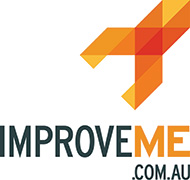5 ways to expand your resume while job seeking
In a recent edition of ImproveMe’s ‘Advice from the Experts’, journalist and PR expert Anastasia Salamastrakis wrote about what she did to improve her skills, gain experience and rise above the competition whilst job seeking as a graduate in the midst of a previous recession.
It led me to think about job seekers in today’s challenging economic climate and the competition they face in the job market, what with so many Australians currently job seeking. This competition is likely to grow even more fierce when JobKeeper comes to an end.
Imagine a hiring manager looking at the resumes of two individuals whose education and past job experience is virtually identical in terms of suitability for a role being recruited. How to differentiate between the two candidates?
The hiring manager notices that since being made redundant due to the COVID-19 pandemic, one candidate has completed three short courses to develop a basic level of knowledge on topics of emerging importance, used an online tool to better understand and utilise their transferable skills, attended a webinar on an industry related issue and volunteered at a service helping others impacted by the pandemic.
However, the other candidate – also made redundant due to the pandemic – does not appear to have taken any steps to develop their skills and knowledge since losing their job. If you were the hiring manager, which candidate would you likely choose to speak to first?
With this scenario in mind, what can job seekers be doing to give themselves an edge above the competition, however minor?
Attend webinars
A search on LinkedIn, industry association websites, professional services firm websites, event sites such as eventbrite, or even just Google will bring up a range of free webinars on offer from a vast array of organisations.
Some businesses use Facebook and Instagram to advertise their free webinars too – these ones may be useful, but be warned they may also turn out to be trying to sell you something!
Try to stick to educational webinars from reputable companies that you can reference on your resume. Think about what topics would compliment your resume experience and business knowledge, then sign up to attend. Don’t forget to take notes, you never know when you might like to refer back to them to brush up on some conversation points for an interview.
Undertake online courses
There are many quality courses available online for free or at a low cost. These range from short courses that take 1 – 2 hours to complete, through to options that will see you graduate with a diploma or greater.
Coursera, Udemy and edX offer courses from leading organisations and universities all around the world, while Torrens University has around 50 short courses that are currently available for free to ImproveMe portal users until the end of the year.
Why not learn the basics of digital marketing, design thinking, artificial intelligence or other emerging topics that will be highly useful in the future of work?
Many online courses will provide a certificate as proof of your course completion, which you can use as an appendix to your resume if required.
Volunteer
In ‘Advice from the Experts’, Anastasia discussed volunteering at a community centre where she learnt how to deal with members of the public and provide them with accurate, timely information – skills every journalist needs.
Consider where you could volunteer your time or services. Sites such as Go Volunteer or Seek Volunteer can help you to identify opportunities that might be suitable. Think about what transferrable skills you might be able to learn – communication, leadership, critical thinking and more – when deciding which opportunities are right for you. Also make sure that the opportunity is safe (eg. allows you to maintain physical distancing) and is something you are passionate about!
Volunteering is a great option because it can allow you to develop personally whilst contributing to the community in a time of need. Added bonus – it will make you feel great!
Work experience
This is a tricky one at present due to so many people working from home. However, depending on your industry of interest, gaining work experience may still be possible. If it is, reach out to individuals in your network or relevant organisations to explain your situation and ask if you can undertake one or more days of work experience with them. Offering to do so unpaid may be beneficial – why not consider it “short term pain for long term gain”?
If you are lucky enough to gain work experience, immerse yourself in the experience. Offer to help in any way possible, ask lots of questions, soak up as much information as possible and write yourself a brief journal each day of what tasks you undertook or what you learned. This information will come in handy down the track, either to add to your resume or to discuss in job interviews.
Don’t forget to reach out afterwards with a heartfelt message of thanks. You never know when they might reach back out to you with a future opportunity.
Understand your strengths
Your strengths are the skills that are going to propel you forward in your professional career. But how can you make the most of them if you don’t know what they are? The ImproveMe Competency Assessment and Development Portal are currently available for free to all Australians during the COVID-19 pandemic.
The ImproveMe Competency Assessment will help to identify your two key strengths, which you can highlight on your resume, and the Development Portal can help you develop those competencies (strengths) further, through a range of tailored learning and development opportunities.
The five ideas above are just a few of the available methods of growing your skills and experience, to legitimately expand your level of experience on your resume. If there are other ways you have seen or thought of, please share them with us via help@improveme.com.au.
ImproveMe Co-Founder Brent Lehmann speaks on Rural Queensland Today

ImproveMe co-founder Brent Lehmann is becoming a radio regular! This morning he spoke with Ben Dobbin on Rural Queensland Today. Listen to their conversation about how ImproveMe can help impacted individuals to map out what their pathway back into the workforce might be after the COVID-19 pandemic.
Networking in the time of COVID-19

by ImproveMe co-founder Claire King
Like many, I have spent the last two months working from home in ‘iso’, practicing social distancing to help Australia “flatten the curve”. And while it looks like our commitment to the cause has had a very positive impact on our nation’s ability to limit the number of confirmed COVID-19 cases across Australia (touch wood), I read a report recently that shared a concerning statistic of a different kind.
Shutdown: estimating the COVID-19 employment shock, released by the Gratton Institute, has estimated that between 14 and 26 per cent of Australian workers could be out of work as a direct result of mandatory and voluntary spatial distancing. That percentage equates to between 1.9 to 3.4 million Australians.
History suggests that recovery from periods of high unemployment is rarely fast, which got me thinking about the various ways that a job seeker in today’s social and financial climate (whether unemployed or just seeking a new opportunity) could seek to maximise the additional ‘down time’ they might find they now have on their hands.
One of the first things my co-founder Brent encourages those he professionally mentors to do is “network, network, network”. But considering this generally involves reaching out to people to catch up for a chat over a coffee, or putting yourself out there by attending networking events, it’s not quite that easy at present.
So what can you do to network in the time of COVID-19? Here is our list of top tips:
- Start by mapping out your personal and professional network. Think about EVERYONE you know – from family and friends, to work colleagues (past and present), business contacts, that guy / girl you met once at a seminar / meeting / barbeque, friends of friends, the parents of your child’s school friends, your hairdresser’s husband who works at that company…and don’t forget key contacts you have on LinkedIn.
- Once you have mapped out all your contacts (plus those people you would like to have as a contact in the future), prioritise them based on who to reach out to first. For example, you could focus on those who may have an immediate opportunity for you, followed by contacts who could make a useful introduction for you.
- Prepare to have some conversations that might put you out of your comfort zone. In your mind, rehearse a ‘script’ or a few key points, being forthright about your situation and what you are seeking to achieve. Politeness and honesty are both admirable traits.
- Pick up the phone. I know this seem obvious (even old school), but you’ll find that everyone working from home is glued to their mobile even more than normal as a method of business communication. So it’s a great way to catch them. Just be sure to kick off by checking if you have caught them at a time when they have a few minutes to speak.
- Email directly if you have their email address. If the person’s email address has been given to you by a mutual acquaintance, make sure to explain this at the start of your message.
- LinkedIn – message your contacts or ask to connect with new contacts. You could also consider doing posts about your situation and what you are seeking, or what you have been experiencing, or sharing your personal or professional opinion on a subject. Create some visibility for yourself!
- Ask if you can set up a time to speak – for example 15 minutes for a phone chat or video call. Then make the call (and be on time!), ensuring you are prepared with a few key talking points or questions you want to ask them. For example:
- Start by thanking them for their time and explaining your situation / why you’re keen to have a brief chat.
- What can you tell me about how you got into the [Construction / Financial Planning / Floristry…] industry? It’s a career path I’m keen to explore so it’s interesting to hear how others got started in it.
- What are the things you like most about working in the industry / your role? What are the things you find most challenging?
- Do you have any recommendations for me about organisations or industry associations I should contact, or other people that might be useful for me to reach out to?
- If you attend any online seminars, webinars or conferences, reach out to the speakers afterwards. Tell them you enjoyed their presentation (assuming you did!) and ask them a further question or two. Connect with them on LinkedIn too.
- Make sure to use those all important words – “Thank you” or “Thanks, I really appreciate your time” – with everyone that you contact, whether verbally or by digital means. They’ll definitely remember your expression of gratitude and it speaks volumes about your professionalism.
As you can see, by no means does the COVID-19 pandemic means that networking is a thing of the past. In fact, it’s the perfect time to get started if it’s not your strong point!
We can’t reiterate enough how helpful it is to have an supportive network behind you when you are seeking a new challenge, or even just looking to grow your knowledge to help prove your worth in a current role.
One final thought – if you know of others in the same boat as you, why not share suggestions about what networking tactics worked for you, to help them as they face similar challenges.
Employers discovering hidden talents in current workforce

As featured in Shortlist
Skills assessments originally designed for students and athletes are now being trialled among employers, uncovering valuable insights about in-house skills and internal mobility potential.
Launched last year, ImproveMe is attracting interest from large employers seeking more visibility of their current workforce’s skillsets, says founder Brent Lehmann.
One company has used to it to segment its younger workforce by soft skills, and then match them to various roles on a rotational basis every two years; another has used the results in a similar way to address an area with high attrition.
The ImproveMe platform assesses eight core competencies that represent a mixture of traditional ways of working and skills required for the future: analytical skills, collaboration, creativity, entrepreneurial thinking, leadership, organisational skills, practical skills, and presentation skills, Lehmann says.
Some interesting patterns have emerged from the data gathered so far, he adds. (This is derived from corporate use of the platform and sports/education/individual use – the assessment is free to complete and also allows participants to invite some 360-degree feedback.)
To read the complete article: https://www.shortlist.net.au/nl06_news_selected.php?&selkey=58712
Note, this article is behind a paywall, but you can continue reading free with trial: https://www.shortlist.net.au/freetrial.php
4 ways to help young staff develop professional skills

As featured online in Human Resources Director (HRD)
Young workers are changing jobs regularly because employers are failing to invest in their personal development.
That’s according to Brent Lehmann, original creator of the ImproveMe concept, who said that when he speaks to business leaders about why they are losing young staff one reason stands out above all others.
“They tell me that the most common reason young workers give when quitting their jobs is the fact that their employer failed to develop them,” said Lehmann.
“While having fun at work and being paid well also rates highly for younger generations, it’s clear that it’s nowhere near as important as personal development when it comes to how long someone will stay in a job.
“Businesses who support their young staff through personal and professional development programs will find that they will stick around longer.”
Read the full article here: https://www.hcamag.com/au/specialisation/learning-development/4-ways-to-help-young-staff-develop-professional-skills/208804
